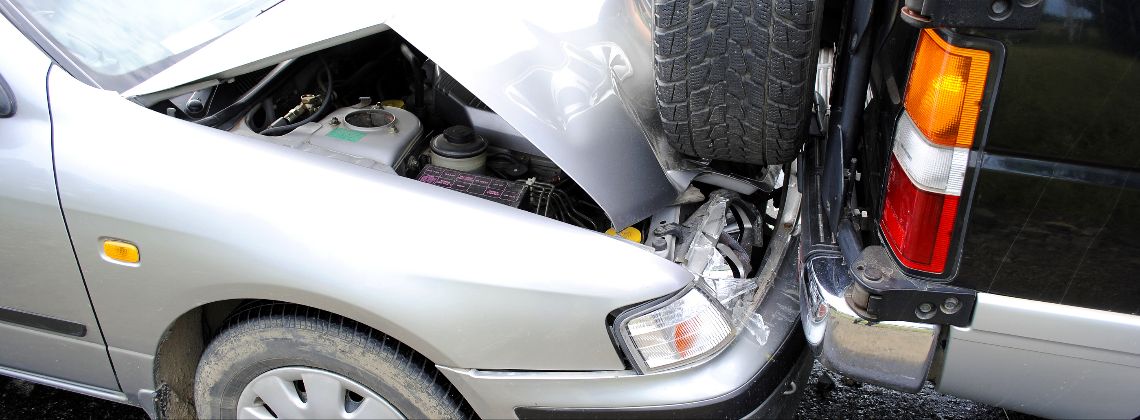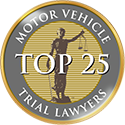
Our Atlanta car accident attorneys have handled hundreds of motor vehicle cases during their careers and as a result, we know that everyone has questions after being injured in a wreck. Below, the nationally recognized trial lawyers at Spaulding Injury Law answer several of the most frequently asked questions by clients after an accident.
How Does The Claims Process Begin?
The claims process usually starts when you call the at-fault driver’s insurance company to report your claims. Often times the at-fault driver has already called in the claim but the adjuster has not gotten around to calling you yet.
Whether it is you calling in or the adjuster calling you, the process begins with the adjuster getting all of your information including whether you have been injured. Be careful here. We have an article that talks about this subject in more depth which you can check out here.
You do not want to give a recorded statement to the adjuster. Instead, simply give her your name and contact information and explain that you have been hurt and that you are going to be seeking treatment.
Remember, you are setting up two claims if you are injured. The first is your property damage claim and the other is your injury claim.
What About The Repairs/Loss Of My Vehicle? Who Pays?
We have created an article solely dedicated to the topic of property damage claims and how to handle them. This is usually the one claim that you can handle on your own without assistance from a lawyer.
If you have taken pictures of the damage (which you should have done), you will want to send those to the adjuster. If you still have possession of your vehicle, you will want to set up an appointment for the insurance company to come out and inspect the damage done.
Be careful when the adjuster comes to look at your vehicle. You do not want to engage in any conversation about your injuries. Keep it only to the topic of the damage done to the vehicle.
If instead your vehicle has been towed away from the scene, let the adjuster know where it was towed. The adjuster will go out to the tow yard and conduct his or her inspection there. If you did not take photographs of the damage done at the scene, go to the tow yard yourself and get pictures.
If your vehicle is repairable, go to a trusted repair shop to inspect the damage and give you an estimate of what it will cost to repair it. Submit this estimate to the adjuster and do not let them convince you that you have to use one of their approved repair shops. That is not the law.
If your vehicle is totaled, the question becomes what was the value of the vehicle in its condition and with the mileage, it had right before the wreck. There are several ways to figure that out. We recommend that individuals use the internet to compile several estimates of the private sale value of the vehicle. Average out those estimates and you have the number you should seek from the insurance company.
What If Who Caused The Wreck Is In Question?
Georgia law requires you to prove the other driver was a fault before you can recover either property damage losses or injury related losses. If your claims have been denied by the insurance company or reduced because they claim you were at fault for the wreck, you may need to hire an attorney immediately.
Even in situations where the police officer has given you a ticket there are ways to prove the officer got it wrong and you were not at fault for the accident. Without question it will not be easy but it can be done. We have had several cases where we have fought the ticket for our clients or meet with the officer to present our facts and evidence to convince him or her to change his opinion about who was at fault.
How Are Personal Injury Claims Valued By The Insurance Company?
It goes without saying that the insurance company’s goal is to pay you as little as possible. Valuation is based on the number of medical expenses you have plus your perceived pain and suffering incurred due to your injuries.
The more treatment you have had and the more severe your injuries, the larger the “value” of your claim. The hardest part of the claim for everyone to evaluate is the pain and suffering part of the calculation. We have an article dedicated solely to the question of what is the value of a car accident case in Georgia here.
What If The Other Driver Has No Insurance?
This is not a typical scenario but does happen from time-to-time. When it does happen, hopefully you have what is called Uninsured Motorist Coverage (UM) on your auto insurance policy.
UM coverage is there to protect you in just this type of scenario. It is also why you want to always report an accident immediately to your own insurance company.
There are also a number of other ways UM insurance can come into play through policies you would not typically think would cover your injuries. This is why it is recommended that you at least consult with an injury lawyer about your case.
What If My Loses Are Larger Than The Coverage Provided By The At-Fault Driver?
Again, this is where UM insurance plays a role to provide coverage. UM insurance covers not only when the other driver has no insurance but often times when the other driver does not have enough coverage to fully compensate you for all of your loses.
In this scenario, whether your coverage applies depends on which type of UM coverage you purchased. We discuss UM coverage in depth in the following article.
How Do I Get Treatment If I Cannot Afford It And Have No Insurance?
One of the biggest mistakes clients make is assuming that the other driver’s insurance will pay their medical bills as they treat. It, unfortunately, does not work that way.
Instead, it is a reimbursement system. You have to treat first and receive payment later as a lump sum from the at-fault driver’s insurance company.
Therefore, you are left having to figure out how to receive and therefore, pay for treatment as you go along. The good news is there are several ways to do it. You can use Medical Payments coverage (Med Pay) or find a physician that would be willing to treat you on a lien. We have another article dedicated to a discussion of the various options.
Still Have Questions?
If you still have questions, please give us a call or fill out our case evaluation form on this website. We provide free consultations and would be happy to help answer any questions you have.









